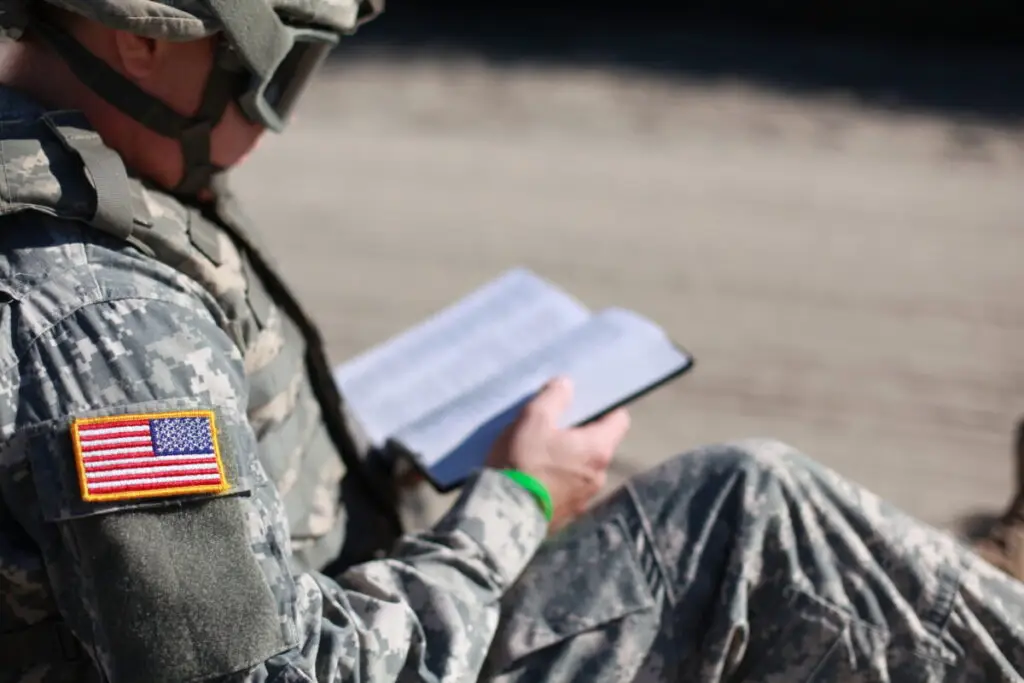Lightstock photo
Editor’s note: This article by Karen L. Willoughby, national correspondent for Baptist Press was originally published at baptistpress.com.
OAK HARBOR, Wash. (BP) – Why would a 19-year-old sailor be at church nearly every day of the week?
The sailor listed Sunday morning and evening services, Bible study, choir practice, helping in Awana, Wednesday meal and men’s ministries at Oak Harbor Southern Baptist Church. It wasn’t only God he was reaching out to, though. It was people.
“They were my family,” the now-retired 20-year sailor told Baptist Press. His Navy chaplain came to his aid to help him get emergency leave when he needed to be home for his son. But Southern Baptist churches, no matter where he was stationed – eight bases, plus three tours to the Middle East – were his family.
Pastors of churches near military bases, along with Army and Navy chaplains, made it clear that the United States’ 1.3 million active-duty military personnel need both churches and chaplains in their lives.
“The military is a very transient institution,” Doug Carver said. Carver is an Army two-star Major General (retired) and the North American Mission Board’s (NAMB) executive director for Chaplaincy. “It is common for military members and their families to move to a new assignment every two to three years. The local Southern Baptist church provides accountability, mentoring and strong relationships to military members and their families.”
On the other hand, chaplains are paid by the government to be “the military’s religious leaders. They are responsible for tending to the spiritual and moral well-being of service members and their families,” according to a May 2022 Military OneSource article. “They have an important role in the commander’s program for operational stress control.”
About 2,800 chaplains – including about 1,100 who are Southern Baptist – serve in the Armed Forces. Many more are needed to serve on the United States’ 700 military installations around the world, according to the Department of Defense. Chaplains and pastors alike concur: More chaplains are needed.
Everything civilians might go through in their late teens or early 20s, a soldier, sailor, marine, airman or coastie [Coast Guard] could go through, said Michael Johnson, a chaplain for the Army National Guard in Yakima. He listed relationship, financial, work-related, combat stress and personal issues, such as sexual abuse, suicidal thoughts, guilt, grief and more.
“The Gospel helps with guilt as well as hurt and abuse,” Johnson said. “A lot of times they need to know there’s an aspect of the Gospel that meets them right where they’re at.”
While military personnel could – and sometimes do – reach out to their pastors for counseling, most of the time “spilling their guts” is reserved for a chaplain who is available 24/7 and who has been trained to deal with military-related issues.
“Deck-plating, we call it,” Hawaii-based Navy Chaplain Jon Elliff said. “We walk around and engage them. When you’re young and enlisted, life can be pretty challenging. You encourage them, help them figure out things.”
Elliff continued, “One of the great benefits of being a chaplain [is that military personnel] see you as someone who will help them. They just come to you for everything. ‘Chaps, I need prayer.’ They see you as a positive, someone who exists for their personal benefit. It’s very refreshing.”
Randy Wallace gave additional insights. He is pastor of First Baptist Church of Killeen, Texas, about five miles from Fort Hood, which was renamed Fort Cavazos in May to honor Texas native Richard A. Cavazos, the Army’s first four-star general of Hispanic descent.
“Chaplains are uniquely provided with access to men and women nobody else has,” Wallace said. “When I came here in 2000, all posts [nationwide] were open except nuclear. There were gates but not manned, but 9/11 changed all that. For us to minister on post now, a person living on post has to invite people to their home.”
Zac Hufty is the pastor of The Village Baptist Church in Fayetteville, N.C., with its Reilly campus a half-mile from the main gate to Fort Bragg, recently renamed to Fort Liberty, the only military installation not named after a person.
Chaplains minister to thousands of soldiers, Hufty said, and needs frequently arise that churches can step up to meet.
“Our team mobilizes very quickly,” said Hufty. “We can buy and deliver a mattress for them in a day, if need be, which we did recently. The chaplains help us meet the individual felt needs of the soldiers and their families.”
Major Jiyong Hwang, an Army chaplain for 15 years, currently serves at Joint Base Lewis McChord in western Washington and attends Tacoma First Baptist Church. “One of the significant challenges for soldiers is the separation from their families,” Hwang said.
“Moreover, they constantly work in environments exposed to danger, leading many soldiers to grapple with various forms of trauma. As the Army chaplain, I offer them encouragement and unwavering religious and spiritual support. Furthermore, I actively advocate for their engagement with their unit chaplain and local churches, where they can find a broader community and a profound sense of connection.”
What about the young sailor who found a church family at every base during his military career? He now lives in the Jacksonville, Fla., area, where he and his wife are active at their Southern Baptist church.

